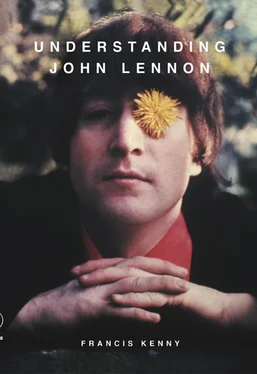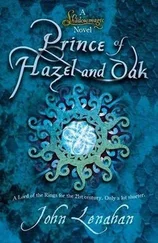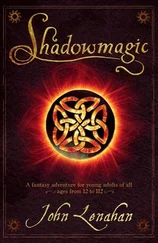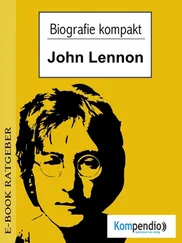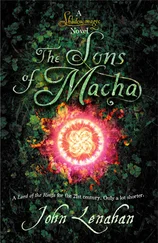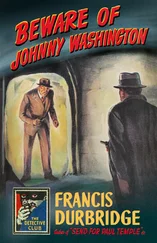Woolton was where Mimi’s husband George was born and brought up. Such a village existence – quiet, slow-paced and seemingly unchanging – may have contributed to George’s laid-back approach to life. It could be argued that inner-city Liverpool had much more in common with New York than it did with Woolton. Mimi’s courtship with the man who was to be father to John for ten years began with him delivering milk from atop a horse and cart from his family’s dairy business to Woolton Convalescent Home, where Mimi worked as a nurse. Though George was well thought of, he liked a drink and a bet with his friends. He was good-looking, six feet tall, and his constant requests for a date were rebuffed. Eventually, after years of George’s overtures, Mimi agreed to go out with him.
During their dating, mild-mannered George fared no better than Freddie in being bullied and harassed by Pop. In Berkley Street, Pop had a habit of bursting into the front room where Mimi and George held their courtship nights and demanding that polite, middle-aged George leave Now! Even Mimi was to comment that Pop ‘was a bit of a bully’. She was to learn from this, though.
George had by this point suggested marriage to Mimi many times, but she stalled. Mimi’s view of George was that he was no more than a stop-gap or fall-back – when someone let her down, she’d call George. According to Mimi, she had already been engaged to a doctor at the hospital who died from an infection that he caught from a patient. Then she was engaged to a doctor who left for Kenya and finally she had a relationship with a RAF fighter pilot who later died in the war. Mimi’s accounts of these Mills & Boon romantic interludes made the role of a milkman’s wife less than attractive. But there was the not insubstantial matter of George’s intended inheritance of the farm, surrounding land and its buildings. Mimi was 32 years old; George ten years older. Mimi was in danger of becoming what her father Pop cruelly labelled his youngest daughter Harriet – ‘an old maid’. With war looming and a man shortage on the horizon, Mimi had a choice of George or continuing employment as a spinster in Woolton Convalescent Home. Finally, after another delivery of milk, George proposed once more and Mimi accepted. To him it was a marriage of respectability.
To Mimi it was a marriage of convenience.
Pop’s support of Mimi was based around the notion of getting Julia to move back in at Newcastle Road and take care of him. When approached, Julia refused. She wouldn’t move in without Bobby. The birth of Victoria, whose father was Taffy Williams, along with the constant pressure by her family not to keep the child, left her in a depressed and debilitated state. She spent almost the entire pregnancy indoors. Bobby was her only means of emotional support and refuge. She wasn’t going to leave him just to provide Pop with a housekeeper. Pop’s old age and physical frailty had made him reconsider his previous righteous indignation and rants. Julia and Bobby moved in with him.
When Julia and Bobby arrived at Mendips and attempted to get John to come and live with them at Pop’s home at Newcastle Road, it ended in crushing defeat for his mother, who was categorically told that John would not be leaving. John’s older cousin, Leila Harvey, witnessed Mimi flinging John behind her and screaming at Julia: ‘You are not fit to be this boy’s mother!’ 8A combination of postnatal depression, the loss of Freddie and her new dependence on Pop for the roof over her head all led to Julia becoming an emotional shell. She was finally worn out by the uncertainties of life. This included Freddie’s seagoing escapades. The birth of John without her husband’s support, the pressures and judgement that surrounded the illegitimate birth of Victoria and the almost immediate demands for her to be adopted had left Julia no match for Mimi, whom Julia Baird describes as a ‘Rottweiler’ and a ‘bulldog’. 9
As part of the ‘deal’ for John living at Mendips, he was brought to Pop’s by Mimi to visit his mother only on a Saturday afternoon. Mimi refused to let Julia call at Mendips. It is also worth noting that had Mimi really wanted to, she could well have adopted Julia’s daughter, Victoria. Why didn’t she? She didn’t want a newborn baby for adoption, even in the shape of her own niece. Newborn babies are a full-time, high-maintenance job. Mimi, it seems, wanted one off the shelf, one already ‘housebroken’. Her complex psychological make-up reveals a permanent clash between her extreme, independent, confident and narrow outlook on life and her unquestionable deference and admiration for those she saw as her betters. A curious aspect of Mimi’s attitude towards Julia’s ‘stain of shame’ and the dishonourable shadow this cast over the Stanley household is that she was herself an illegitimate child. Mary Elizabeth Stanley was born on 24 April 1906; her parents married in a Liverpool parish church on 19 November 1906. Perhaps the child Julia gave birth to in a Salvation Army hospital would be, if the child remained inside the family, a reminder to her oldest sister, Mimi – a sister who spent the best part of her life moralising, and who was herself born out of wedlock.
Regardless of her motives, Mimi had emerged triumphant over Julia. All that remained was to eliminate the unwanted input or presence of Freddie. Freddie’s particular lifestyle made it easy for Mimi to do this. It was the simple matter of a threat. When John started school, seafaring Freddie found himself docked in London, eager at the prospect of travelling to Liverpool to see his son for the first time in nearly 18 months. ‘He was immensely excited at the prospect of being united with his son’, Freddie’s second wife Pauline recalled, but couldn’t face the idea of meeting Julia in the home she shared with Bobby and in order to gain some ‘courage’ for the forthcoming visit proceeded to go a massive bender with five of his shipmates. 10
The group ended up on a central London street admiring the expensive gowns in an exclusive women’s clothing store late at night. Before anyone could utter ‘it wasn’t me, guv’, a shop window was smashed. His shipmates ‘legged it’. With typical Freddie logic, he stepped inside the store, withdrew a mannequin off its stand and proceeded to dance around with it in the middle of Bond Street. The same Freddie, who wouldn’t dance with his own wife to save his life and had stared blankly at Julia as she entertained a stream of new dance partners at the local dance hall, now plucked up the (Dutch) courage to engage in a quick foxtrot down the streets of the West End. As with most of Freddie’s escapades, it ended in tears, or, to be more accurate, in his arrest by two passing policemen. He was sentenced to six months in Wandsworth Prison.
But behind the farce there were severe repercussions for John. Not only would he not see his father again until he was an adult, but Freddie compounded his arrest by making the fatal mistake of writing a letter to Mimi, with the intention of seeking her advice with regards to his time behind bars and how best to get out. Mimi’s view of her brother-in-law had always been coloured by embarrassment and contempt. On his marriage to Julia, Mimi’s view was blunt and unambiguous: ‘Why she picked him I’ll never know. I couldn’t believe she ended up with a seaman. He was a good for nothing.’ 11But Freddie wasn’t to know the extremely low opinion that his sister-in-law held of him; he also wasn’t fully aware of the role Mimi had played in taking John from his mother. Now in Wandsworth Prison, he had made it game, set and match as to where John was to spend the next 17 years of his life. Mimi’s return letter to the prison told Freddie exactly where he stood – that he had better start a new life well outside of Liverpool, unless he wanted John to find out his father was a jailbird. Essentially, Freddie was blackmailed out of his son’s life.
Читать дальше
